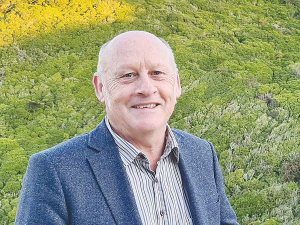Doctors and rural women welcome pre-Budget boost for urgent and after-hours care
Doctors and rural women are welcoming the recent pre-budget announcement from the Government that it would be boosting funding to urgent and afterhours care facilities.
 Hauora Taiwhenua chief executive Dr Grant Davidson says more GPs will have a measurable impact on the health of New Zealanders.
Hauora Taiwhenua chief executive Dr Grant Davidson says more GPs will have a measurable impact on the health of New Zealanders.
Hauora Taiwhenua Rural Health Network is welcoming the Government’s response to a shortage of GP’s across the country – but especially in rural areas – through new funding initiatives.
Developed by the Royal New Zealand College of General Practitioners and set to be launched in 2023, the three initiatives will include: increased salaries for first year GP registrars; more funded teaching time for specialist GPs to dedicate to first year registrars; and GPs hosting post graduate doctors doing community attachments will receive a weekly hosting fee.
The New Zealand Rural General Practice Network (NZRGPN) says these initiatives will add a much-needed boost to attracting medical graduates to train as specialist GPs by encouraging rural practices to host junior doctors in their communities.
“The future of a career in general practice is beginning to look more attractive.”
With a salary increase of roughly 20% for RNZCGP registrars expected to affect up to 140 new registrars in 2023, there is now also funding of $300 per week for each practice hosting a community-based clinical attachment for new interns.
Hauora Taiwhenua chief executive Dr Grant Davidson says, while it’s a good first step to achieving parity with registrars in other health professions, wider system-based changes are needed if we are to see a greater number of GPs choosing to work in rural communities.
Research conducted by the RNZCGP, and first published in a 2021 workforce report, has shown that New Zealand currently has 74 GPs for every 100,000 people. This already low number is estimated to fall further to 70 per 100,000 by 2031.
“Adding more GPs will have a measurable impact on the health of New Zealanders; 10 more GPs per 100,000 people means about 30 people wouldn’t die from cancer, respiratory and cardiovascular diseases,” the report says.
It also adds that more GPs would save the economy $139.6 million each year.
“There needs to be more positions available in medical schools, with a good proportion of these targeted at students interested in rural general practice,” Davidson says.
“At the same time, there should be an immediate review of rural primary care funding so that workers can enjoy pay, work conditions, and lifestyles that will make rural health a highly regarded and soughtafter career, which it once was.”
Agrisea NZ has appointed Craig Hudson as it's new chief growth officer.
State farmer Landcorp, trading as Pamu, is a forecasting a full-year net profit of around $100 million.
Tony Aitken, chief executive of Ruralco, has been awarded the Excellence in Business Leadership Award at the ANZ Business of the Year Awards.
Global trade has been thrown into another bout of uncertainty following the overnight ruling by US Supreme Court, striking down President Donald Trump's decision to impose additional tariffs on trading partners.
Controls on the movement of fruit and vegetables in the Auckland suburb of Mt Roskill have been lifted.
Fonterra farmer shareholders and unit holders are in line for another payment in April.

OPINION: Here w go: the election date is set for November 7 and the politicians are out of the gate…
OPINION: ECan data was released a few days ago showing Canterbury farmers have made “giant strides on environmental performance”.